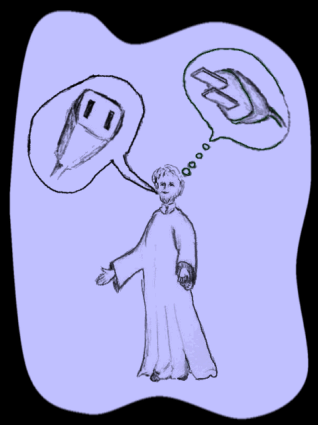“The meaning of things lies not in the things themselves, but in our attitude towards them.” – Antoine de Saint-Exupery
How long has it been since you last practiced your math? Let’s put it to a test with two simple riddles. We’ll start with this one: Suppose you randomly pick an integer (that is, whole) number from the set of all positive integer numbers, what’s the probability of picking an even number? … What was that? Did I hear you say “50 percent”? Sounds reasonable indeed!
So let’s proceed with the second riddle: Have a look at this specific set of numbers: {1, 3, 2, 5, 7, 4, 9, 11, 6, 13, 15, 8, 17, 19, …} – hope you get the idea. Now, if you randomly pick an integer number from this set, what’s the probability of picking an even number? Did we hear you say something like “33 percent”? Sounds reasonable again!
The point is that “the set of all positive integer numbers” is identical to this strange set above (since for the term “set”, the internal order of its members is irrelevant, as long as we talk about the same members altogether). Therefore, the last two questions are actually the same question.
So what’s the trick here? What is the correct answer to these questions? We’ll get back to that later in this chapter. In the meantime, let’s return to our boring discussion about religious preachers: “Why were you born into this world?” “What’s the purpose of your life?” – it’s common to come across such questions. If we look at them closely, we find that they are more answers than questions. “Why” in this context generally means “for what purpose”. Since lifeless entities usually don’t set any goals and purposes, then the question implies there is some living entity involved in your being here and alive. “Why did you come to this world?” therefore stands for “Someone brought you to this world – what was his goal in doing so?”
After we’ve already agreed on the creation of your soul, the argument about the goal of the creator may well be less important. Hiding an answer in what seems to be a question, is something we often do. Many times we don’t even think about it, yet sometimes we plan it carefully. Look at the following examples:
Question: Cash or charge?
Actually: We’ve already agreed you pay. We’re only left with the minor issue of how you pay.
Question: Was the light on when you were in the room?
Actually: You were in the room! Was the light on then?
Question: Have you read the Holy Bible?
Actually: The Bible is holy. Have you read it?

The correct answer to the above math questions is that there is a problem in the questions themselves. Without going too deeply into the probability theory, let’s just say that the action of randomly choosing something from an infinite set is not clearly defined.
Undefined questions and self-conflicting questions constitute other interesting categories. They often confuse words with ideas. “What happened before time began?” “Can God create a rock so heavy that he cannot lift it?” – Note that in a way, most statements that discuss ‘God’ also express a hidden claim about the existence and qualities of that ‘God’, as if it is well and uniquely defined.
<< Prev Contents Next >>






